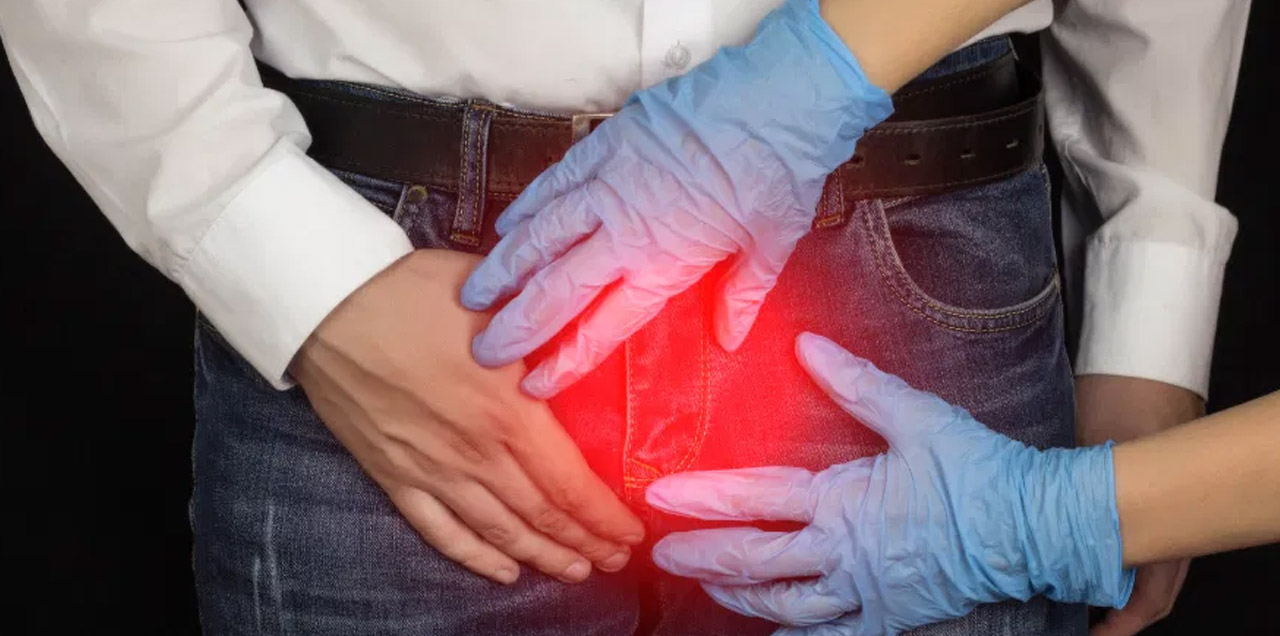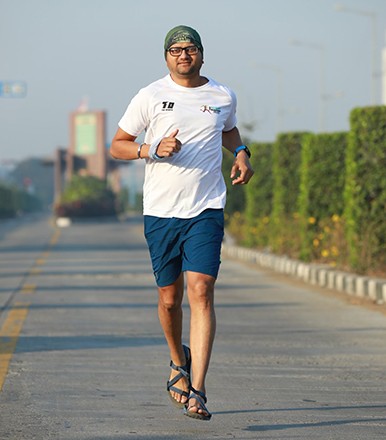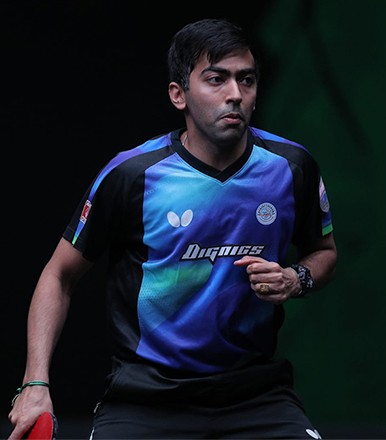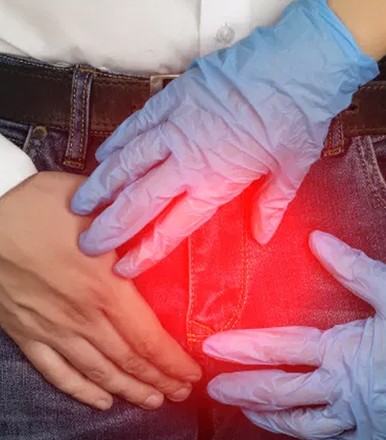Men’s health has long been one of the most neglected segments of society. The perceived image of tough men has led to widespread belief that they are somehow immune to everything. This dangerous stereotype often results in society ignoring to voice men’s problems and health concerns.
While there are global awareness campaigns for Breast cancers, the discussion around cancers affecting men, particularly testicular cancer, remains scarce. Yes, breast cancer is indeed more prevalent and fatal, but testicular cancer, if undetected and untreated, can be equally life-threatening.
Recognizing this gap, we at Hello Fitness decided to bring the topic of testicular cancer into the spotlight. We engaged in an insightful conversation with Dr Dinky Gajiwala, a consultant medical oncologist and hemato-oncologist Cancer physician, to shed light on testicular cancer and how to diagnose and prevent it. So, read on to understand its risk and the steps you can take to stay ahead of the disease.
What is Testicular Cancer?
Testicular cancer is the most common cancer that affects men aged 15 to 35. “It occurs when abnormal cells in the testicles grow uncontrollably. It is different from other cancers because it starts in a different part of the body and has a high survival rate if detected early.”
We know that this leaves you with the question: can testicular cancer kill you? Well, the simple answer to this would be no. Dr Gajiwala says, “It is not always fatal; rather, the survival rate of this cancer is exceptionally high. The 5-year survival rate for men with testicular cancer is about 95%, which means that 95 out of 100 men diagnosed with the disease are still alive five years after diagnosis.”
Just because it doesn’t qualify as a fatal form of cancer doesn’t mean it can be overlooked, as this condition can also cause other health issues. For starters, you can experience pain in your testicles, scrotum, or lower abdomen. Therefore, diagnosing them early is important before it becomes a painful experience.
Early signs and symptoms of testicular cancer
Early detection of any cancer is important, and testicular cancer is no different. Here are some of the common signs and symptoms, according to Dr Gajiwala, that men need to be vigilant for:
- A lump or swelling in either testicle.
- A feeling of heaviness in the scrotum.
- A dull ache in the lower abdomen or groin.
- Sudden collection of fluid in the scrotum.
- Pain or discomfort in a testicle or the scrotum.
Cause and Prevention of Testicular Cancer?
Now that we are aware of the symptoms of this cancer, you might want to know the reason why this disease occurs in the first place. Well, to answer that question, there are no actual causes of testicular cancer known to science as of yet. However, certain risk factors increase its likelihood. These include:
- Age: this disease affects men aged 15-35.
- Family history: Having a close relative with testicular cancer can increase the chances of you having it as well.
- Undescended testicle (cryptorchidism): A condition in which one or both testicles fail to move into the scrotum before birth can also cause this disease.
- Previous testicular cancer: Having cancer in one testicle increases the risk in the other.
Since the cause of the problem is unknown, it becomes very hard to prevent it. Hence, Dr Gajiwala advises, “There is no sure way to prevent testicular cancer. However, being aware of risk factors and performing regular self-examinations can help with early detection, which significantly improves the chances of successful treatment.”
Although to prevent cancer from happening, one can perform self-examinations every month. To examine yourself, “gently roll each testicle between the fingers and thumb, feeling for any lumps, changes in size, or irregularities.” Regular self-exams can help men detect changes early and seek medical advice promptly.
Diagnosis of Testicular Cancer
If you ever feel something is wrong, whether you feel some of the above-listed symptoms or the self-examination makes you question yourself, you should certainly top for a doctor’s appointment. They have several diagnostic procedures, listed below, to confirm the presence of the disease:
- Testicular Ultrasound: This method uses sound waves to create images of the testicles and detect abnormalities.
- Blood Tests: Check for elevated tumor markers often present in men with testicular cancer.
- Imaging Tests: Doctors and radiologists use imaging tests, such as CT scans, to determine whether cancer has spread to other areas of the body.
Treatment of Testicular Cancer
The one question that plagues everyone is, what are the latest treatment options for testicular cancer? Well, the answer to that question lies in the advancement of modern medicine.
- Surgery: The first and most potent way to cure cancer is removal of the affected testicle (orchiectomy) is often the first step.
- Radiation therapy: This is another treatment that uses high-energy rays to target and kill cancer cells.
- Chemotherapy: A widely known treatment of cancer has always been chemotherapy. This method uses drugs to kill cancer cells throughout the body.
Keep in mind that there are always side effects to any cancer treatment. Surgery can leave you with pain, swelling, and possible infertility in case both your testicles are affected. The radiotherapy can cause fatigue, skin changes, and perhaps fertility issues as well. Chemotherapy has prevalent side effects like nausea, hair loss, and weight loss.
However, one should not fear getting treated as the above-listed methods are enhanced remedies. Dr Gajiwala further explains, “Improved survival over the last thirty years is attributed to the development of cisplatin combination chemotherapy.”
Common Myths and Facts Regarding Testicular Cancer
Whenever there is a lack of information, it is more likely to garner a lot of myths. Hence, we decided to get some of the common myths debunked by Dr Gajiwala.
The first and perhaps the biggest myth circulating the internet was that masturbation causes testicular cancer. Debunking this myth, Dr Gajiwala said, “There is no scientific evidence linking masturbation to testicular cancer.” She also told us that an injury to the testicle doesn’t cause this cancer; it might cause swelling and pain, but those won’t be symptoms of cancer.
Testicular cancer leading to infertility is another major myth among people. To this, she said, “Many men can still father children after treatment, though fertility can be affected depending on the treatment.”
Raising awareness and promoting early detection is crucial in the fight against testicular cancer. Dr Gajiwala emphasized, “Regular self-examinations and awareness of symptoms are key to early detection.” Numerous organizations, such as the Indian Cancer Society and local cancer support groups, offer resources and support for men diagnosed with testicular cancer.
In conclusion, understanding testicular cancer and being proactive about health can significantly improve outcomes. Men should be encouraged to perform regular self-examinations and consult a healthcare professional if they notice any unusual changes. Early detection and treatment are paramount; with the right information and resources, men can stay ahead of the curve in managing their health.














